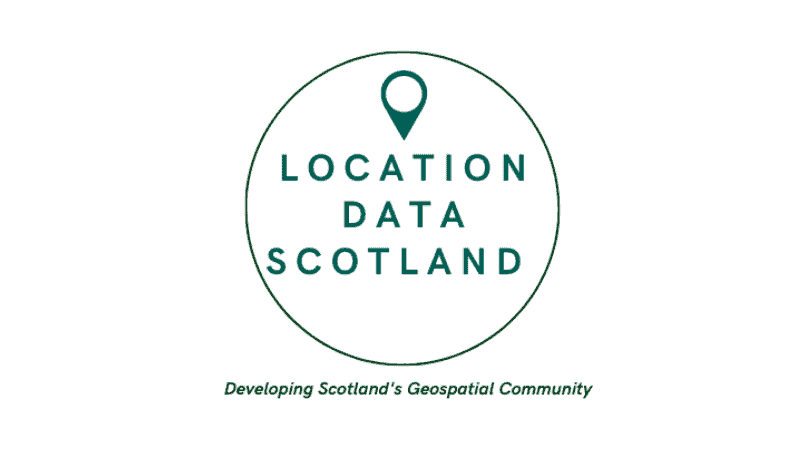Geospatial or location data is everywhere, used in all aspects of our lives from the Sat Nav in our car, to tracking our pizza delivery driver. The last 3 years has seen the importance of location data as an enabler to drive innovation, being amplified through a government pilot programme, Location Data Scotland.
Funded by Scottish Enterprise, Scottish Government and the Geospatial Commission, the programme set out to create a geospatial community of private and public sector organisations across Scotland to drive innovation, explore skills and create economic growth. It has been instrumental in helping shape and influence policy around geospatial strategies at Scottish Government and has contributed to UK Government thinking.
As the pilot programme comes to an end, some exciting opportunities have been formed out of this emerging technology.
The profile of geospatial technologies as an enabler of innovation across Scotland has been significantly raised and Location Data Scotland has helped showcase how geospatial technologies and innovative solutions are transforming key sectors such as space, agriculture, financial services, space, travel & tourism, construction and energy.
The Location Data Scotland community now consists of 120 start-ups, SMEs, corporates, public sector organisations, research and academia, and charities. This community has been widely successful at amplifying Scotland’s experience and capabilities in location data on an international scale. We can see this through some truly innovative shining examples such as Glasgow based Space Aye who are merging Internet of Things (IoT) data with real-time satellite imagery to create a global view of the world, Eolas Insight who are transforming how geospatial data is utilised in the environmental and ecological sectors to improve nature in light of the climate crisis, Edinburgh based Topolytics who are making the world’s waste visible, verifiable and valuable through their Waste map product and Vahanomy who are creating a joined up ecosystem for autonomous vehicles and services.
By bringing together leaders from industry, LDS, in partnership with University of Edinburgh and AGI Scotland, has identified the skills gaps in geospatial across and Scotland and created a unified skills roadmap for the future. This has resulted in a first-of-its-kind pilot programme with Fife College to develop and test a dedicated geospatial skills course as an introduction into the Geospatial industry.
The programme unlocked investment opportunities for some of Scotland’s leading entrepreneurs in this area, such as Eolas Insight who secured seed investment to enable them to scale up and employ new staff to roll out of their AI based environmental mapping solutions.
Alan Corbett, Head of Geospatial at the Scottish Government said:
“The Scottish geospatial sector is a thriving and innovative place to be with lots of local and national initiatives being successfully delivered through sector collaboration. The last 3 years of Location Data Scotland has helped drive additional investment in world-leading tech industries such as the space sector providing high value, skilled jobs, an important part of Scotland’s sustainable economic recovery. The programme has brought together a strong community of private and public sector organisations and has significantly helped shape the Scottish Government’s Geospatial Action Plan, which is hoped will act as the catalyst for continued investment and economic growth within the geospatial sector.”
Rebecca Reid, Skills and Capabilities Policy Lead at Geospatial Commission, said: “At the Geospatial Commission, our strategy is to ensure the UK stays ahead of the curve in revolutionising location data and technologies. Location Data Scotland supported by University of Edinburgh and AGI Scotland has been instrumental in driving the skills agenda forward, encouraging academia to actively consider this as part of their course curriculum.”
Fiona Ozdemir, Project Manager at Scottish Enterprise, commented: “Location Data Scotland is a shining example of the power of businesses coming together, to collaborate and innovate, including connecting with the public sector and academia to secure economic opportunities.
From small beginnings, the now 120-strong community has gone from strength to strength. It’s exciting and encouraging to witness these companies striving to meet the growing appetite for these innovative data and technology solutions. It is particularly pleasing that these solutions can be delivered across such a diverse range of industries including tourism, financial services, and agriculture.
The launch of the “Skills Road Map”, developed during the project, will encourage further engagement as the geospatial sector continues in its current growth trajectory.”
Further funding has been made available through Scottish Government to evolve and shape the Location Data Scotland community further and focus on evolving the skills agenda for Scotland. This project has been awarded to Glasgow based strategic consultancy Optimat Ltd.
Source: Scottish Business News

